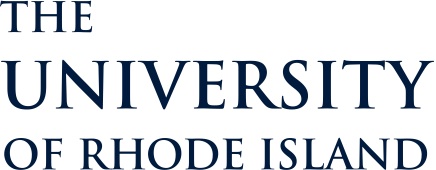As part of a national effort to increase organ and tissue donations in the African-American and other minority communities where the need for organs outpaces donations, researchers from the University of Rhode Island are on the road this fall.URI Cancer Prevention Research Center (CPRC) Assistant Research Professor Mark Robbins and Human Development and Family Studies Associate Professor J. Eugene Knott received a $1.27 million grant from the U. S. Department of Health and Human Services to increase the organ and tissue donation intentions of African-American college students. The grant was awarded in partnership with the Carolina Donor Services and Health Promotion Alliance of four Historically Black Colleges and Universities (HBCUs) in North Carolina.
In this new program and in similar projects underway with other schools in the college donor awareness project, the URI researchers are using their successful organ-donor recruitment programs and are advancing their understanding of the donation decision-making process in these populations.According to Robbins, the aim of the newest grant is to increase the rate of donation intentions among African American students at HBCUs. The program also seeks to better understand what types of interventions in the decision-making process may lead to that increased donor rate.
"Fifteen African-Americans die each week while waiting for a donor organ. Because of a high rate of end-stage renal disease in this population, 35 percent of all kidneys -- the single most-needed organ for the nearly 90,000 Americans on the waiting list -- are needed by Black Americans," said Knott. "This research effort and awareness campaign will help to spread the word and open minds of potential organ donors."
The URI team is responsible for the research portion of the grant and the creation of content and distribution of individual campaign materials. The group spent the first year of the three-year grant developing materials for the intervention and the measures to evaluate their impact. The campus-wide campaigns kick-off in January 2003 at North Carolina A&T, North Carolina Central, and Fayetteville State universities, and at St. Augustine's College.
The researchers will evaluate the efficacy of an innovative expert system intervention combined with a campus-wide awareness campaign that are all based on the Transtheoretical Model (TTM) of behavior change that was developed at the University's CPRC. The expert system development is headed by Janet Johnson, CPRC assistant research professor, and the methodologist on the team. Several graduate and undergraduate students are also working with the team.
The research will involve two treatment groups comprised of a representative sample of sophomores and juniors. All study participants will complete telephone surveys to assess the donation decision-making process and will receive organ donation information via the campus-wide campaign. Half of the students will then receive individualized feedback reports generated by the TTM-based expert system. The reports are matched to the students' level of readiness to become an organ donor and focus on key variables that have been found important in accelerating behavior change in similar interventions.
Since joining the University in 1996, Robbins has been applying the TTM to understanding decision-making and behavior change processes for family consent for organ donation, individual intentions to be an organ and tissue donor, and medical regimen adherence for transplant recipients. The grant is also the latest in a series of federally funded organ donation projects that Knott has undertaken at URI since 1993.
The new study joins 22 ongoing projects researching ways to increase family consent for donation, motivate individuals to declare their intent to donate and share their decision with family members. Those projects have received grants totaling approximately $23 million, including a $1.2 million grant awarded to Robbins and Knott at URI in 1999 for a program to increase family consent for organ donation.
Following decades of extensive research sponsored in large part by the Centers for Disease Control, the TTM is now used successfully in interventions for behaviors such as smoking, alcohol, cocaine, mammography, exercise, sun protection, coping and stress, weight control, HIV and safer sex, and substance abuse.
